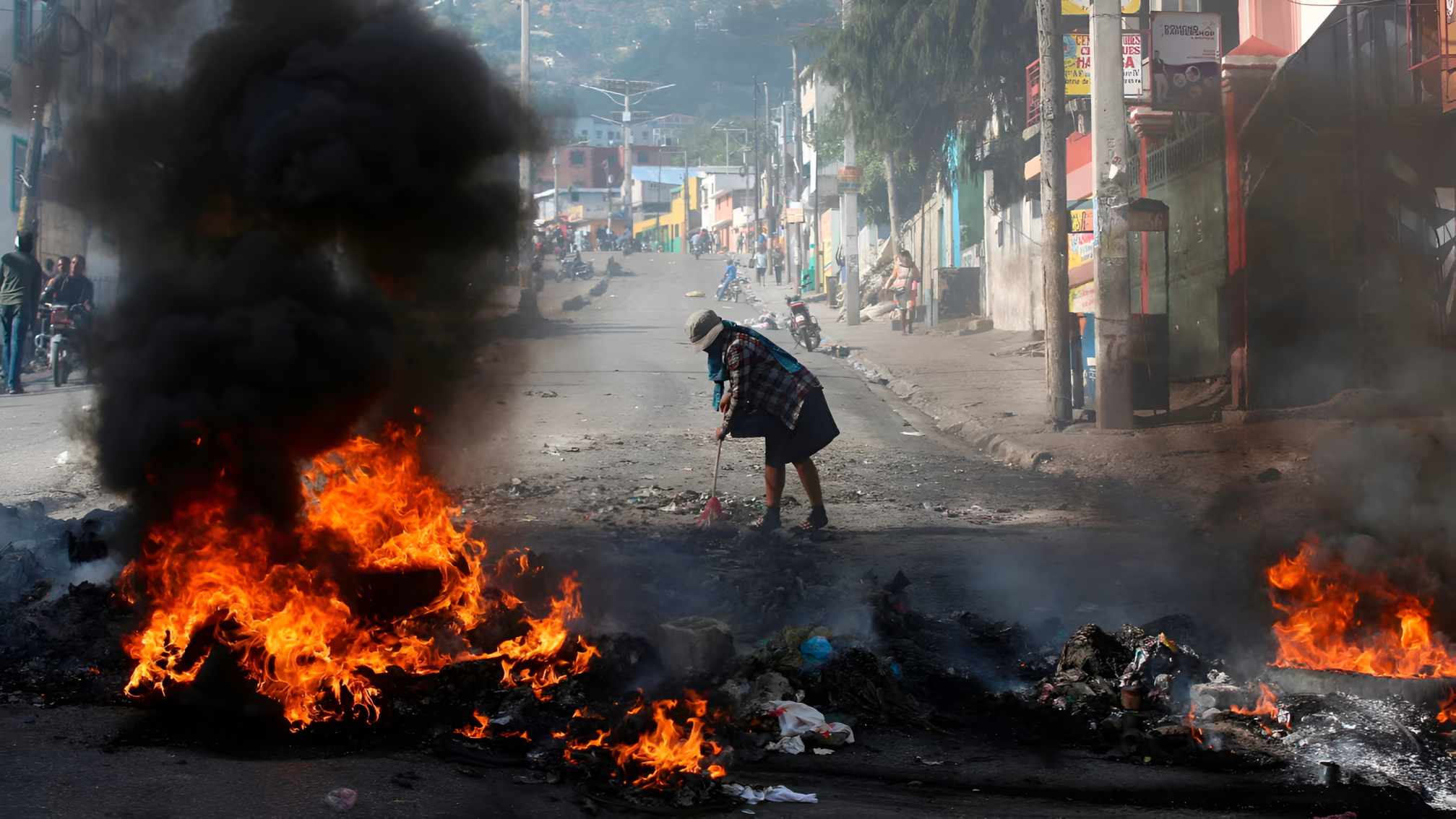Gangs tighten grip on Haiti as interim government loses control

According to a June 1 report by the Financial Times, the country is facing its worst humanitarian and security crisis in years, with criminal groups expanding their influence and forcing thousands of residents to flee.
Armed gangs have seized control of large parts of Port-au-Prince and are now demanding political recognition, overwhelming Haiti’s interim government and plunging the capital into chaos.
According to a June 1 report by the Financial Times, the country is facing its worst humanitarian and security crisis in years, with criminal groups expanding their influence and forcing thousands of residents to flee.
The few government officials still operating are reportedly trapped in Pétion-Ville, a wealthy neighbourhood now surrounded by gang-controlled areas.
“"They come at night to steal everything they can, setting fires to hold their positions. We are right in the middle of it," said a business owner evacuating his family and staff.
The United Nations-backed mission led by Kenyan police officers has had little visible impact. Journalists from the Financial Times, during a four-day visit, reported no sightings of patrols.
The mission initially deployed around 1,000 foreign officers but has scaled down following the deaths of two Kenyan officers.
Former acting Prime Minister Claude Joseph described the situation as "a daylight nightmare," saying, "You never know when somewhere is going to fall."
Once divided and in conflict with each other, the gangs have grown more coordinated and powerful since the 2021 assassination of President Jovenel Moïse.
In early 2023, they launched a campaign that forced out then acting Prime Minister Ariel Henry.
They now appear to want more than territorial control, pushing for recognition as political actors.
Port-au-Prince, home to over 2.5 million people, has turned into a battlefield. Gangs rule entire neighbourhoods, blocking roads, burning buildings, and using residential walls to move undetected.
Streets are filled with rubble, burnt vehicles and bullet holes. A self-defence group led by a police officer known as Samuel is reportedly the only line between gangs and the interim presidential council.
As public services collapse, private security teams and police have resorted to using kamikaze drones to fight gangs. But Finance Minister Alfred Métellus warned that drones alone won’t be enough.
"Using drones is necessary but not enough. They must be accompanied by the deployment of the security forces on the ground to take definitive control of the areas under gang control," he said.
The political crisis has worsened the humanitarian situation. Haiti has not held a national election since 2016. The interim government has been accused of corruption and infighting and has failed to restore order.
Its first leader was removed in November 2023, and it continues to operate with minimal control.
The United Nations says more than one million Haitians—around one in ten—have been displaced. In 2024, over 5,600 people were murdered, and nearly six million now face acute food insecurity.
More than a third of the population lives on less than $2.15 (Sh2.77) a day.
Two-thirds of public hospitals in Port-au-Prince have shut down. Gangs are reportedly extorting businesses by controlling access to the ports, pushing up prices of food, fuel and other essentials.
Many people who can afford to have relocated to Cap-Haïtien, the second-largest city.
Conditions in displacement camps are dire.
A government building in the capital houses over 8,000 people in squalor, with its surroundings reeking of faeces, urine and rotting garbage.
Heavy rains flood the site, forcing dozens to sleep on rooftops and in empty swimming pools covered by scraps of tarp.
Health workers have reported outbreaks of cholera and tuberculosis, but international agencies rarely visit.
Gangs are also expanding beyond the capital, taking control of key regions like Artibonite and Mirebalais, which sits on the road to the Dominican border.
In May, the United States labelled two of Haiti’s biggest gangs as foreign terrorist organisations. Yet, the interim government continues to plead for more international military support.
While it has called for a full UN peacekeeping force, previous proposals have been blocked at the Security Council by China and Russia.
The United States is now pushing for a new mission led by the Organization of American States, although the bloc has limited experience with high-risk security operations.
